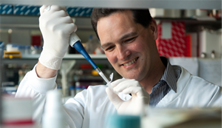Photogallery
Login
Archives
ABSTRACT
Critical issues in periodontal research
Manish Kumar, Vandana A. Pant, Vivek Govila, Mona Sharma
ABSTRACT
A significant recent development in periodontal research has been the convergence of basic and clinical research resulting in a logarithmic increase in the rate of progress. Scientific consensus has been reached in many areas. In most populations, moderate to severe periodontitis affects a relatively small segment of adults who are at high risk. The microbiological etiology is accepted and the identity of major pathogenic bacterial species is known. The mechanism through which resistant individual fend off the microbiological challenge are known, and the immune-inflammatory pathways activated by bacteria that underlie destruction of alveolar bone are reasonably well understood. The evidence shows that these pathways are held in common by all form of periodontitis. The better understanding of the pathogenesis has lead to host modulation, which helps in preventing the disease. Although bacteria are essential for disease to occur, they are insufficient; a susceptible host is also necessary. Host susceptibility, disease progression and response to treatment are determined predominantly by heredity and environmental and acquired risk factors. Some of these can be changed while others are immutable. Concept and procedure for treatment are generally scientifically based and appropriately applied. Preventive measures are widely practiced and applied in industrialized counties. Clearly, control of this ancient chronic disease is within the reach.Even after all these advances, there are still some issues associated with periodontics that remains unresolved and needs to be clarified. Enormous studies have been done regarding these critical issues since few decadesbut still stand tall and are yet to be clarified.So,the future of periodontal research will revolve around understanding and resolving these critical issues associated with it.
[Full Text Article]
